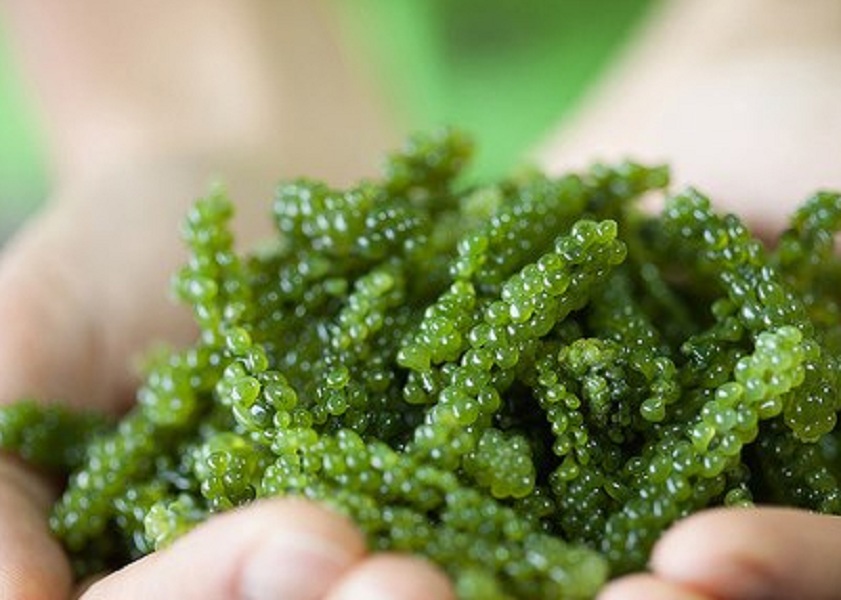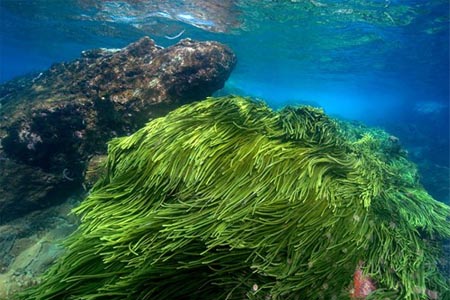Marine algae are distributed throughout the seas, commonly found in countries like South Korea, Japan, and China. They come in a variety of colors, ranging from dark green and black to the distinctive red. According to scientific research, marine algae contain numerous nutrients such as vitamin B1, B6, C, E, A1, K, calcium, and magnesium…
Algae also have strong anti-inflammatory and antibacterial properties, offering multiple health benefits. Nowadays, marine algae are used in various dishes such as soups, salads, or processed into drinks and functional foods to provide easy and effective nutritional supplementation.

Marine algae have many health benefits, including:
Detoxifying the body, aiding in the elimination of accumulated toxins, and improving the functions of the liver and kidneys.
Boosting the immune system of the digestive tract, promoting a healthy gut environment, and preventing symptoms like constipation and indigestion.
Efficiently preventing and treating various types of cancer, such as liver and gastric cancer.
Controlling body weight, preventing obesity, and reducing fat accumulation.
Enhancing energy metabolism.
Improving blood circulation and preventing anemia.
Marine algae can also be processed into facial masks to take care of the skin, resulting in a naturally bright and youthful complexion. However, despite being a natural ingredient, using marine algae can have some side effects such as allergies, nausea, abdominal pain, sudden weight gain or loss, edema, digestive disorders, and delayed blood clotting. Therefore, caution is advised when consuming or using marine algae, especially for first-time users, to prevent the risk of allergies.

Who should avoid consuming marine algae?
People with kidney dysfunction
The human body produces a significant amount of ammonia when metabolizing protein in spiral algae, which is converted to urea. This puts pressure on the kidneys to eliminate urea from the blood, leading to excessive kidney function and even kidney failure.
People with heart and blood pressure problems
Individuals with heart or blood pressure conditions should avoid consuming excessive vitamin K, as it can cause blood vessels to narrow and potentially lead to blood clots. Marine algae, on the other hand, contain a significant amount of vitamin K, requiring special attention when using them.
People with phenylketonuria (PKU)
Spirulina and other types of marine algae contain phenylalanine, a compound that individuals with phenylketonuria (PKU) should strictly avoid. PKU is a genetic disorder characterized by symptoms such as delayed development, seizures, and hyperactivity.
People preparing for or undergoing surgery
Spirulina can reduce blood sugar levels. Experts recommend discontinuing its use at least 2 weeks prior to surgery.
People suffering from diarrhea
Due to possible pollution in marine areas where algae are harvested, consuming marine algae can cause digestive symptoms like diarrhea and nausea. For individuals experiencing diarrhea, using algae can exacerbate the condition and pose a risk to their health.
People with acne issues
Marine algae have seafood-like properties, which can easily irritate the skin and worsen acne. Therefore, individuals with acne should limit the consumption and use of algae as a source of nutrition for their bodies.
People taking anticoagulant medications
Anticoagulant medications such as warfarin or non-steroidal anti-inflammatory drugs like Aspirin should not be taken together with marine algae. Marine algae contain a significant amount of vitamin K1, which reduces the effectiveness of anticoagulant medications. Combining these medications with algae increases the risk of blood clotting and endangers the health of the patient.
People using immunosuppressant drugs
If you are using immunosuppressant drugs to treat conditions such as psoriasis, lupus erythematosus, myasthenia gravis, or multiple sclerosis, you should avoid consuming marine algae. Marine algae can reduce the effectiveness of these medications and lead to serious complications for the patient’s health.
- Detoxifying the body and improving liver and kidney function.
- Boosting the immune system and promoting a healthy gut.
- Preventing and treating certain types of cancer.
- Controlling weight and reducing fat accumulation.
- Improving energy metabolism and blood circulation.
- Caring for the skin and maintaining a youthful complexion.





































